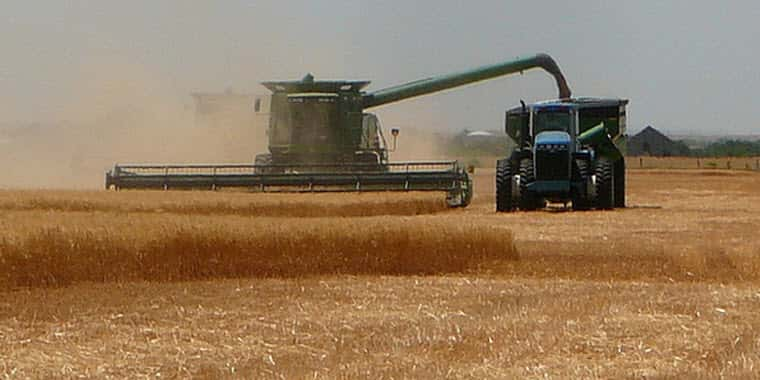After waiting for more than a year for the USDA’s Quality Loss Adjustment (QLA) program, Montana farmers were thankfully to finally see the disaster aid program announced. Developed as part of the WHIP+ aid program, QLA provides financial assistance to farmers who experienced substantial quality losses in wheat in 2018 and 2019 due to excessive moisture at harvest.
QLA took over a year to develop, due in part to the fact that this is the first program of its kind to attempt to indemnify producers for quality losses in grain. The pandemic and the rapid rollout of the Coronavirus Food Assistance Program (CFAP) at FSA, certainly delayed the development of QLA as well.
However, soon after the program was announced some farmers discovered a snag in the program’s documentation requirements. Producers are required to provide documentation of how much they were discounted for the quality of the wheat they delivered. Discounts are listed for falling numbers, DHV, sprout, and other factors. However, when grain is sold on a feed contract, there are no discounts as producers receive all of the contract value.
At this point, it appears that practically all of the wheat sold as feed could be ineligible for the QLA program. This is a significant issue for producers as most of the wheat in Eastern Montana and Western North Dakota that saw the severe quality losses was sold as feed.
Montana Senator Jon Tester, who has been advocating for the QLA program since the 2019 harvest, sent a letter to the Farm Service Agency about the challenges that farmers are experiencing with the program.
“After more than a year of waiting, Montanans were initially thrilled to hear that [the Quality Loss Assistance Program] would provide much-needed support for impacted growers,” wrote Tester. “That is why it is exceptionally disappointing to hear that QLA does not provide adequate support for producers that sold grain as feed. Under existing QLA guidelines, producers must submit quality discount settlement documentation, which is not often issued for feed wheat. Without documentation, this means that the producers who need QLA the most are unable to make full use of this program.”
Tester concluded, “It is absolutely unacceptable that on the way out the door, the Trump Administration created program rules that do not actually work for folks on the ground. I urge you to correct this error, and right a wrong for Eastern Montana grain growers.”
###
Northern Ag Network


